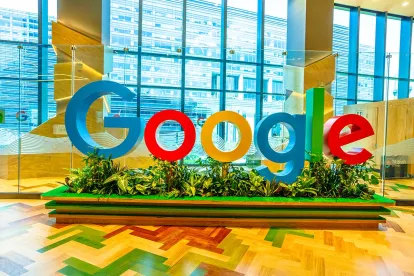Google recently suffered a blow in its ongoing National Labor Relations Board litigation, when an Administrative Law Judge appointed to rule on a discovery dispute ordered the Silicon Valley company to turn over the lion’s share of certain documents subpoenaed by former Google employees. Discovery issues have become more prevalent in NLRB litigation as massive document subpoenas issued by the government are the norm. The disputes are almost singularly one-sided: The agency is shielded from almost all discovery but is free to serve its own subpoenas. A recent ruling by an Administrative Law Judge demonstrates the perils of attempting to cloak vast categories of documents as attorney-client privileged or work product.
Google, which faces allegations of unlawful interference with, and retaliation for, employees’ union organizing activity, had sought to characterize the documents at issue, communications between Google and a labor relations consulting firm, as privileged. The disputed documents included advice and materials provided by the consultants to assist Google in mapping out its own campaign strategy.
“Privileged” materials are, of course, generally not discoverable. The attorney-client privilege protects communications between an attorney and client made, in confidence, for the purpose of obtaining legal services. It is generally insufficient to simply mark a document with a privileged label or to copy attorneys on the communication to protect the information from discovery.
In rejecting Google’s argument that the attorney-client privilege applied, the Administrative Law Judge focused on the consultants’ status as third parties outside of Google’s attorney-client relationship. Communicating with a non-legal third party, like a consulting firm, can be fatal to later attempts to classify those communications as confidential or legal in nature, as is required for privilege to attach.
“Between an Attorney and Client”
Google argued that its communications with its consultants were protected by the attorney-client privilege because Google’s lawyers were included on these communications. However, simply including lawyers on an email thread or forwarding materials to them does not automatically shield those materials.
For example, instead of sending certain materials directly to Google, the consultants would first send them to Google’s outside counsel, who then passed the materials to Google. The Administrative Law Judge labeled this practice as a “disingenuous” effort to “conjure a privilege.” For privilege to attach, the attorney must actively participate in the communications.
“For the Purpose of Obtaining Legal Services”
Sharing communications with a third party generally but not always waives the attorney-client privilege. When sharing is necessary to obtain legal advice (for example, when the client requires a translator), the privilege can remain.
The Administrative Law Judge poured cold water on Google’s argument that this exception applies to the consultants’ materials. The consultant communications could not have been “necessary” to obtain legal advice because, at the time, Google was not seeking legal advice at all. Rather, Google contracted with the consultants to obtain advice on campaign strategy, which is not a legal issue.
The fact that Google’s lawyers reviewed the consultants’ materials in order to issue advice on the materials’ legality did not change this calculus. The Administrative Law Judge deemed this argument “nonsensically circular” because the necessity for that particular legal advice did not arise until after the documents were created.
Takeaways
The bottom line for employers is that they should be mindful that communications with third parties, such as labor relations campaign consultants, are not necessarily privileged and may be discoverable in litigation. This is the case even if lawyers are included on those communications.
This decision comes shortly after another discovery ruling that covered similar ground. In October, a New York judge found that actor Kevin Spacey’s emails to a public relations firm—another non-legal third party—were not privileged, even though Spacey’s lawyers were included on the emails.
In the ruling discussed here, the Administrative Law Judge had reviewed only 80 out of a total of 1507 disputed documents. Of those 80, he only characterized nine as privileged, suggesting he may continue to take a narrow view of privilege for the remaining materials. Interested parties should keep an eye on whether future rulings shed additional light on the scope of privilege.





 />i
/>i

